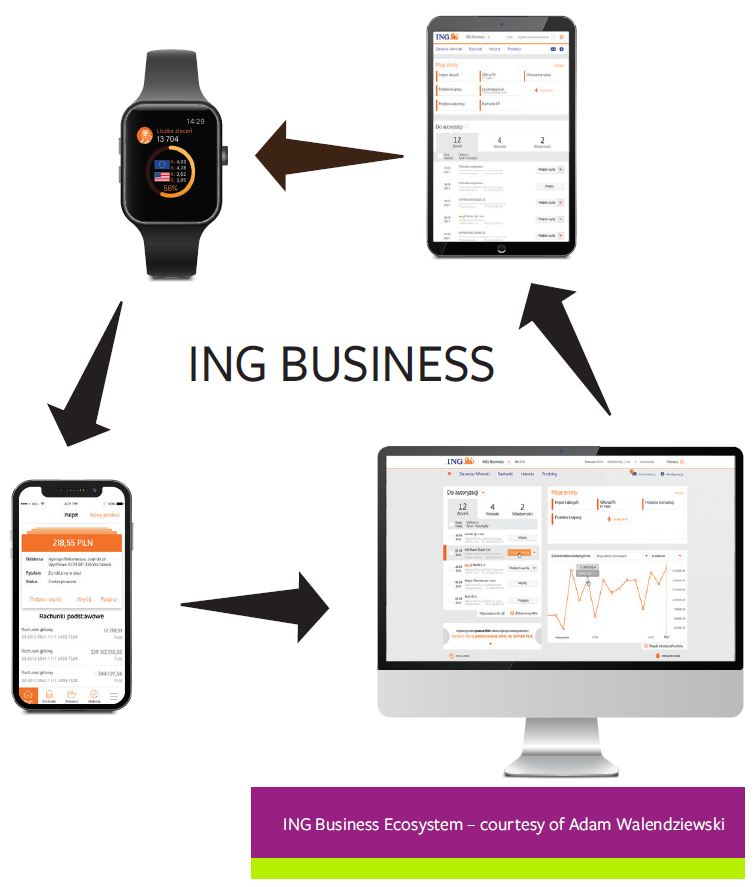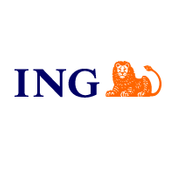ING Bank’s Digital Platform Tribe Goes Agile
ING Bank is a global financial institution with more than 52,000 employees and customers in over 40 countries. Adam Walendziewski is the Global SME/ MC Digital Platform Centre Director at ING Bank Slaski (part of ING Group) in Warsaw, Poland. He tells us how an agile approach has transformed his operation, in Poland and beyond.
Challenges: |
Results: |
|
|
The issue:
Challenging times
‘As head of the 60-person digital platform tribe, I need to deliver excellent online banking solutions to our business customers. Our agile transformation was launched at ING’s Dutch head office in 2015. In 2016 we were in the middle of a very important project, and we were struggling. Progress wasn’t smooth, we sometimes felt we weren’t getting anywhere – which made us increasingly frustrated and in danger of compromising quality, without meeting our deadlines. It was clear that we needed a new approach. Something had to change! We had to find a better way to do things.’
The solution:
Building an agile mindset
‘Fortunately for us,’ Adam continues, ‘some members of our team had already been exposed to agile ways of working, and encouraged us to look closely at moving over to an agile approach. We elected to work with the Scrum framework, and really quickly realised that it was the agile mindset that would offer us the greatest potential to transform our results.’
Co-location and communication
‘We were doing development work with an external vendor team and recognised that we would work much more effectively if there was closer collaboration across all the people involved. We decided to co-locate the team, bringing two separate organisational cultures together and aligning them behind the Scrum pillars: transparency, inspection and adaption. This wasn’t straightforward. We needed to revisit our contractual agreement to allow agile working, but we didn’t wait for this before making the change. We moved our people, started collaboration, and then allowed the paperwork to follow.’
We knew that getting the best results wasn’t simply a case of introducing an agile framework for working practices. We needed to build the agile mindset
We knew that without a shared mindset, everything would collapse
Sharing “why and how”
‘Having put the team in one place, we started an educational programme so that everyone could understand the principles of an agile way of working. We knew that getting the best results wasn’t simply a case of introducing an agile framework for working practices. We needed to build the agile mindset. This was the hardest part. It’s a process that should never end, and we are now constantly looking for ways to improve.
‘We dedicated a lot of time to ensure that everyone understood why the transformation was taking place. People would only commit to working in a different way if they could see why a change was needed, and if they could visualise for themselves a future where delivery would be smoother and more beneficial for all concerned. We knew that without a shared mindset, everything would collapse. It was crucial to show team members and stakeholders why we were doing what we were doing.
‘It was an ambitious programme. We had just six staff leading a mindset change for a tribe of 60.’
Just doing it
‘We went from “idea” to “doing it” in just 45 days. That’s not saying it was fully implemented, but we allowed agile practices to evolve as we went along. We started to distribute good practices around the tribe and organise ourselves aroundScrum principles. We had a massive deadline pressure and knew that “just doing it”, combined with an “inspect and adapt” mentality would be the best way to meet our ambitious targets. We now maintain a continual focus on getting rid of barriers and obstacles to progress, and making the work of our experts easier. All of this requires a lot of trust, which is why mindset and culture change have to be tackled first in order to make agile transformation successful.’
The results:
Opening up potential and impact
Communication and collaboration sit at the core of effective agile practices. For Adam, the most influential change that was made was to co-locate the teams. ‘From day one, communication was better,’ he confirms. ‘It’s powerful to have people sitting together. Instead of trying to articulate ideas on email or online platforms such as Jira, they were able to discuss how to approach challenges face-to-face. Team members need to have conversations, to bring together different perspectives and open up new lines of thinking. Getting everyone together in this way wasn’t straightforward, it needed room planning – so we could align our sprints across different tribes and squads.’
Agile philosophy is centred on a desire to delight the customer – not only fulfilling their needs, but going above and beyond to create enthusiasm and advocacy. ‘Before we started working in an agile way,’ Adam remembers, ‘we built completed solutions and then delivered them to the customer and discovered their response.
‘Now we get that vital feedback much earlier in the process. We create mock-ups and prototypes so that customers can try out new online banking pages for themselves. When we have their feedback, we base our onward development work around the customer’s perspective so that we are adapting our approach to real-time evidence of their needs.
‘We are constantly fixing and adapting our agile way of working. The big challenge is to not make silos within our squads or tribes.’

Measurable benefits
Adam is confident that not only do working practices now feel more efficient, but the metrics back this up. ‘Our Net Promoter Score (NPS) score for the ING Business Platform went from -30 to +30 within one year’ he confirms.
ING conducts an annual employee engagement survey called the Winning Performance Culture scan (WPC) in order to better understand the issues important to ING employees and to measure their state of mind. The WPC survey covers topics such as management quality, integrity, compliance, diversity, employee pride, brand perception and community investment. Adam is delighted with his team’s results. ‘Our employee engagement results from this survey are at 88% – really, really high!’
Agile is all about collaboration – both with the customer and across our teams
Looking to the future
Adam’s digital platform tribe was the first digital platform tribe in the SME/MC area in ING Bank Śląski to explore agile working. Encouraged by their success, ING Bank has rolled out an agile way of working in other SME/MC tribes.
By starting small in one area of the organisation, the bank built a foundation of applied agile experience, which is now enabling their wider transformation to move forward in a smoother way.

